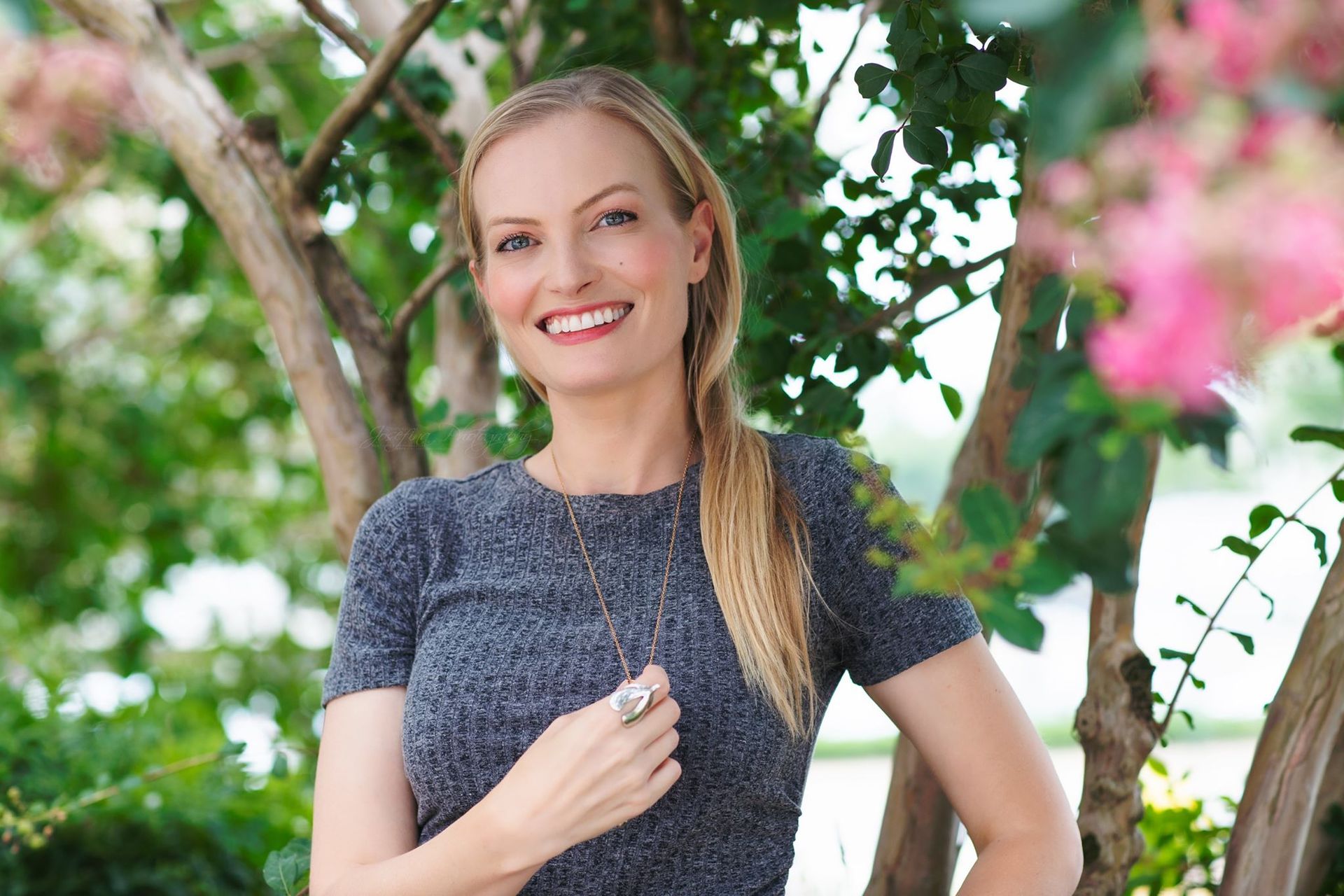You’re probably familiar with the tropes. Hormone-crazed teens and twenty-somethings struggle to keep their hands off each other, while desire drops off the second you’re blowing out the 4-0 candles on your birthday cake. But what if some of the best sex of your life is actually ahead of you?
The terms “great sex” and “40-plus” might not seem like an obvious combination — if, that is, you’ve absorbed the message that your sexuality fizzles out with middle age. But while aging impacts everything from libido to physique, you can have a deeply gratifying sex life well into your golden years.
Aging can impact your sexuality in both positive and challenging ways, according to experts who spoke to DailyOM. And those upsides can more than make up for any efforts needed to navigate the tricky parts.
5 Things You Need to Know About Sex After 40
1. Your Libido May Change
Contrary to what you might have heard, plenty of middle-age adults experience better sex and increased desire, says sex and relationships therapist Megan Fleming, PhD. Those two traits are, not surprisingly, often linked, considering that when you enjoy sex, you’ll probably want more of it.
Other reasons you might desire sex more often in your 40s include being in a new relationship, thanks to the feel-good hormones that novelty brings; not having to worry about an unwanted pregnancy if you or a partner stop menstruating; and having more time and willingness to try new things, Fleming notes. You may have more free time if you’re no longer child rearing, for example, or if you’re more settled into a career.
Sexual frequency is less important than sex quality. (Wouldn’t you prefer incredible sex now and then to so-so quickies regularly?) A 2019 Kinsey Institute study showed that while sex frequency wasn’t related to how satisfied married couples were with their relationship, both partners were more content with their marriage when the sex they did have was gratifying.
On the flip side, Fleming says it’s not uncommon to experience a downshift in libido after 40. Possible reasons include hormonal changes; high levels of stress, anxiety, or depression; and being in a relationship “where you feel disconnected from your partner or the sex you have doesn’t feel worth having, often becoming scripted and mechanical,” she explains.
If you’re bothered by a dip in your libido, Fleming suggests exploring your body to discover what feels best. “Be your own best lover,” she tells DailyOM. “Own what gives you pleasure so that you can better communicate that to your partner.” And although most everyone’s libido ebbs and flows throughout life, it’s wise to consult your doctor about any dramatic changes.
Interested in learning more? Check out Sex and Intimacy After 40
2. Your Desire Style May Change
In your early adult years, it may have seemed like your body could turn on at the (sexy) drop of a hat. You’d see someone who you found attractive and a tingly warmth would sprinkle through you, thanks in part to faster-acting hormones. Within minutes, you could be ready for steamy play. That quick type of desire, known as spontaneous desire, becomes less common with increasing age, for reasons such as dips in estrogen and testosterone levels.
However, what becomes more common is responsive desire, or “desire for sex that emerges in response to a situation, experience, state of mind, time and place, contextual excitement” and that “builds up over days or even weeks,” says Cyndi Darnell, sex and relationships therapist and the author of Sex When You Don’t Feel Like It: The Truth About Mismatched Libido and Rediscovering Desire.
“Now in our forties, life is different,” Sheppard says. “I shed those social constructs and all of a sudden, it was like I woke up.”
Trying to be instantly sex-ready when your body and mind need more time can lead down a disappointing path. Rather than engage in performance-oriented sex, Darnell suggests doing what you truly feel like doing — and your 40-plus age may be an attribute in getting there. “To start creating a new dynamic around sex and pleasure means being courageous and that tends to come with maturity and experience.”
If your desire kicks in after physical touch begins, for instance, leaving more time for kissing and caressing before an activity like intercourse may lead to more gratifying sexual experiences. If mental stimulation like spicy stories fuel your desire, try reading erotica during the hours or days leading up to sex.
3. How You Feel About Your Body Matters
Your libido and ability to stay present in and enjoy sex may rise like a tide after 40 if you feel more comfortable and confident about your body. Or it can take a downward turn if you’re feeling not so great about it. Sadly, the latter isn’t uncommon.
“Many of us gain weight as we age and go through menopause,” says Fleming, naming one example. And given that stigma remains around weight gain and larger body size, many people experience dwindling body image around middle age. If that crops up for you, chipping away at that shame — with professional support, if needed — can go far.
And while women’s body image struggles are well known, men are also prone to body shame that interferes with sex. Research conducted by the Cleveland Clinic in 2018 showed that about 40 percent of men experience some level of erectile dysfunction by age 40, with gradual increases thereafter. And given that few of us learn that sex of many kinds can be pleasurable, it’s easy to feel as though there’s something inherently wrong with you if you experience ED.
Self-consciousness can tank sexual satisfaction. “Body shame steals pleasure and joy and inhibits what’s possible,” says Fleming. “Learning to feel good in your body at this moment, especially when it’s not ‘ideal,’ is foundational to knowing and allowing pleasure.” In other words, you don’t have to feel sexy to experience fantastic intimacy. Satisfying sex might even be the thing that helps you feel more at ease with your physique. (It’s nearly impossible to have body-shaming thoughts during an orgasm.)
If you notice distracting, negative thoughts about your body during sex, Fleming suggests observing the thought like a passing train versus one you hop on. This practice can help you learn “not to give those negative thoughts oxygen,” she adds. Meanwhile, redirect your attention to something pleasant, like your partner’s cologne or the sensation of their fingers on your skin. “Breathe into it and see if you can expand it,” says Fleming. “Explore all five of your senses to pull yourself into the present moment.”
To move toward embracing your body in general, consider keeping a gratitude journal. A 2018 study published in Body Image showed that journaling grateful thoughts about your body can bolster body image. After all, the idea that sexiness fades with time is based on societal beauty standards, not on actual fact.
4. It Might Be the Perfect Time to Explore
When Jade Chang Sheppard, serial entrepreneur and founder of Scarlet Society, found herself divorcing around age 40, she knew she wanted to “explore and try everything,” including sexually, she tells DailyOM.
“But taking cues from society and the internet, the message I got was Well, if you’re done having kids, you don’t need to have sex anymore,” she adds. Those ideas were completely contrary to how she felt: more alive and confident about her body and her wants.
“Life was and is amazing, and nothing about messaging in our society reflects how so many women 40-plus today feel,” Sheppard says. Not only did she step into her sexual desires and explore more passionately than ever before, but she now also encourages fellow women over 40 to embrace their desires, no matter the specifics.
And for middle-age men, if you want to have enjoyable, explorative sex, try embracing gender equality. A study conducted at Ontario’s McMaster University in 2020 showed that self-identifying feminist men are more likely to engage in activities beyond intercourse, such as breast caressing and oral play.
5. Knowing What You Want Is Key — and So Worth It
If you’d like to make the most of sex from age 40 on, Darnell suggests asking yourself how you want to feel rather than what you want to do. “This is part of what I call your Erotic Template,” she adds. “We each have one that is unique, powerful, and ever-changing, which is excellent. Work out what’s made you feel how you want to feel before, and then work backward.”
In other words, think about the time, place, context, and situation that matches up with how you most want to feel in terms of sex. “It’s hard to know what else you want if you don’t know what’s available,” she points out. “This is why focusing on how you want to feel is often a more accessible entry point than talking about activities or positions, which often don’t help at all.” From there, you can start re-creating what you cherished most about those experiences and cultivate the sex life you genuinely desire.
Once Sheppard started exploring her sexual wants, she felt stronger and more authentic outside of sex, too. “There are so many ways to live life that we can explore now that really didn’t come up as possibilities in our twenties when we had our heads down, trying to accomplish everything we were told we needed to do: job, marriage, kids, house, et cetera … Now in our forties, life is different,” she says. “I shed those social constructs and all of a sudden, it was like I woke up.”

